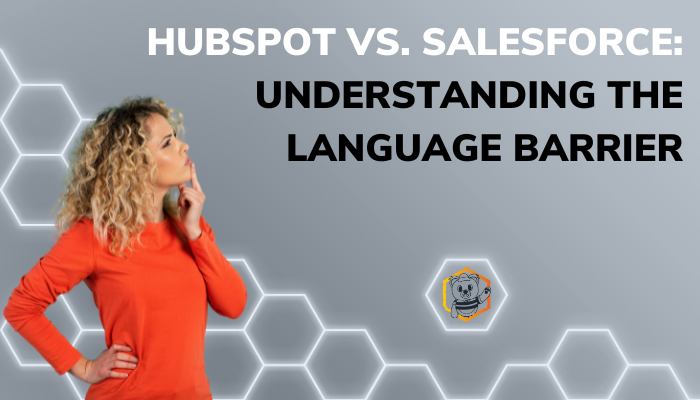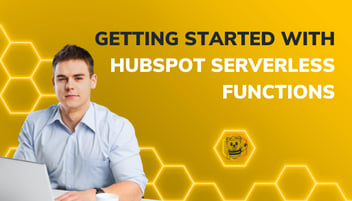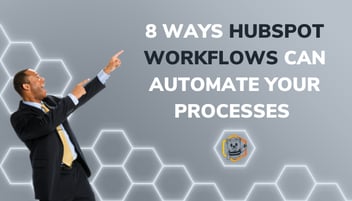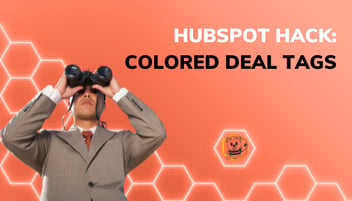
HubSpot vs. Salesforce: Understanding the Language Barrier
If you've recently transitioned from HubSpot to Salesforce, you may have noticed that there are some differences in terminology between the two platforms. While both platforms offer robust sales and marketing solutions, it can be confusing to navigate the different terms used by each. In this blog post, we will explore some of the key differences in terminology between HubSpot and Salesforce, so you can better understand the terms used in both platforms.
Contact vs. Lead
In HubSpot, a "contact" is any individual who has provided their information to your company, such as by filling out a form or subscribing to your blog. In Salesforce, a "lead" is someone who has shown interest in your company but has not yet become a customer. This difference in terminology may seem small, but it can affect how you approach and interact with your audience.
Deal vs. Opportunity
In HubSpot, a "deal" is any potential sale your team is actively working on closing. In Salesforce, an "opportunity" is the same thing. However, the use of different terms can affect the way you think about and approach the sales process.
Company vs. Account
In HubSpot, a "company" is any organization you do business with. In Salesforce, an "account" is the same thing. The use of different terminology may seem minor, but it can affect the way you think about and interact with the organizations you work with.
Lifecycle Stage vs. Sales Stage
In HubSpot, the "lifecycle stage" of a contact or company refers to where they are in the customer journey. For example, a contact might be in the "subscriber" stage, the "lead" stage, or the "customer" stage. In Salesforce, the equivalent term is "sales stage." However, the customer journey encompasses more than just the sales aspect, which is why HubSpot uses the term "lifecycle stage."
Workflows vs. Automation Rules
In HubSpot, "workflows" are a powerful tool that allows you to automate certain tasks and communications based on specific triggers, such as a contact filling out a form or opening an email. In Salesforce, the equivalent term is "automation rules."
Marketing Qualified Lead (MQL) vs. Sales Accepted Lead (SAL)
In HubSpot, an "MQL" is a lead that has been deemed ready for further engagement by the marketing team based on certain criteria, such as their behavior on your website or their job title. In Salesforce, the equivalent term is "SAL" or "sales accepted lead." The difference in terminology reflects the different stages of the lead generation process.
Understanding the differences in terminology between HubSpot and Salesforce can help you better navigate and use both platforms. While the differences may seem minor, they can affect the way you approach and interact with your audience, your customers, and your tools. Transitioning to a new CRM can be a daunting task, but learning the terminology of HubSpot can help ease the learning curve and set you up for long-term success.

|
Why use a HubSpot Partner to help? Workflows can get complex. There are a lot of benefits to using a HubSpot Partner to set up automation processes. Expertise and Experience: HubSpot partners are certified professionals who possess extensive knowledge and experience in using the HubSpot platform. Customization and Personalization: A HubSpot partner can customize workflows to match your unique business requirements. Faster Implementation: HubSpot partners are well-versed in workflow creation and can efficiently implement automation processes. Cost-Effectiveness: While there may be an upfront investment in hiring a HubSpot partner, their expertise can save you valuable time and resources in the long run. By avoiding trial and error, you can ensure that your workflows are well-designed from the start, leading to improved efficiency, better customer experiences, and a higher return on investment. Contact us to learn more about how using a fractional HubSpot admin service like HIVE Hub can benefit your organization. |







